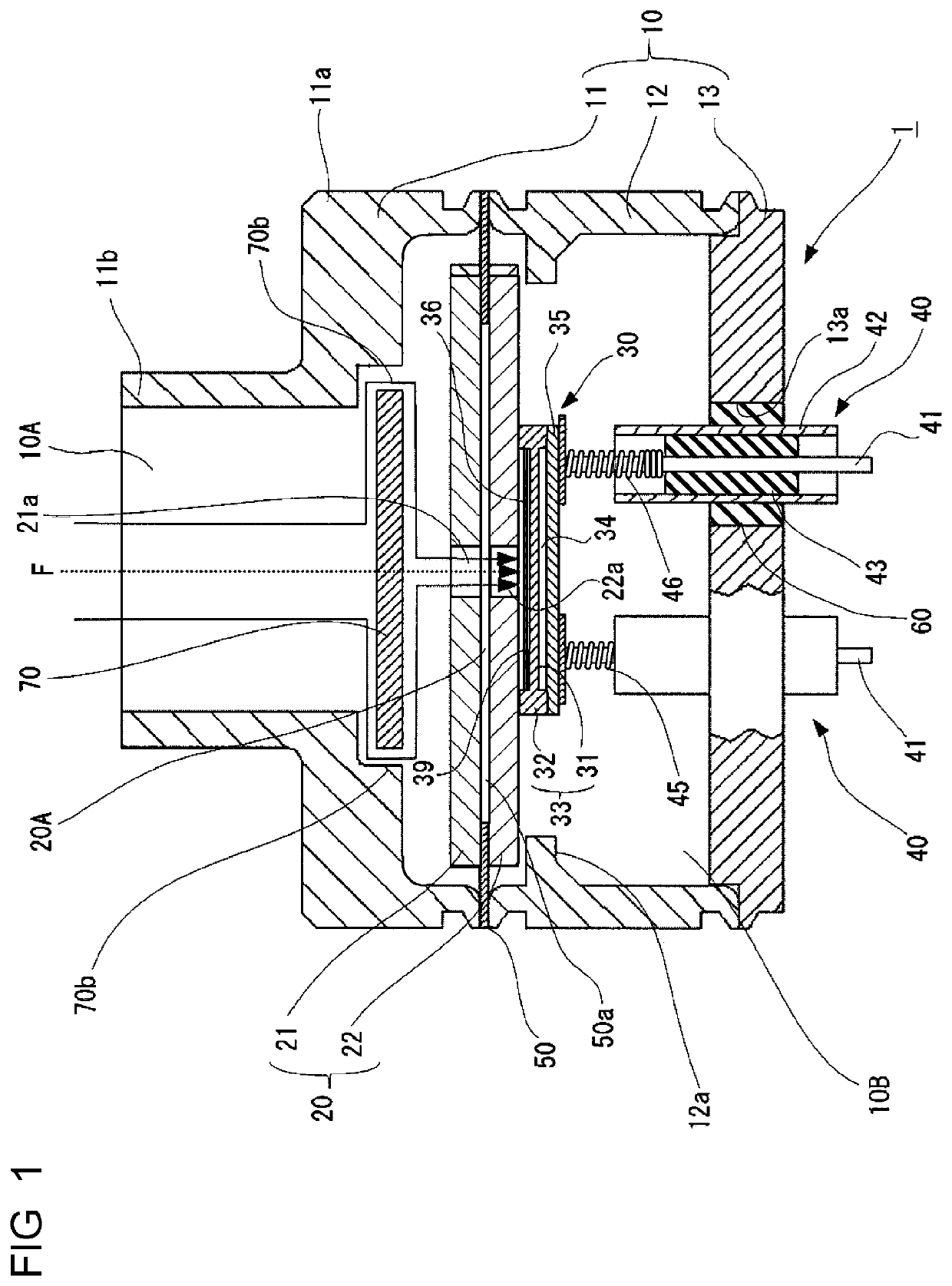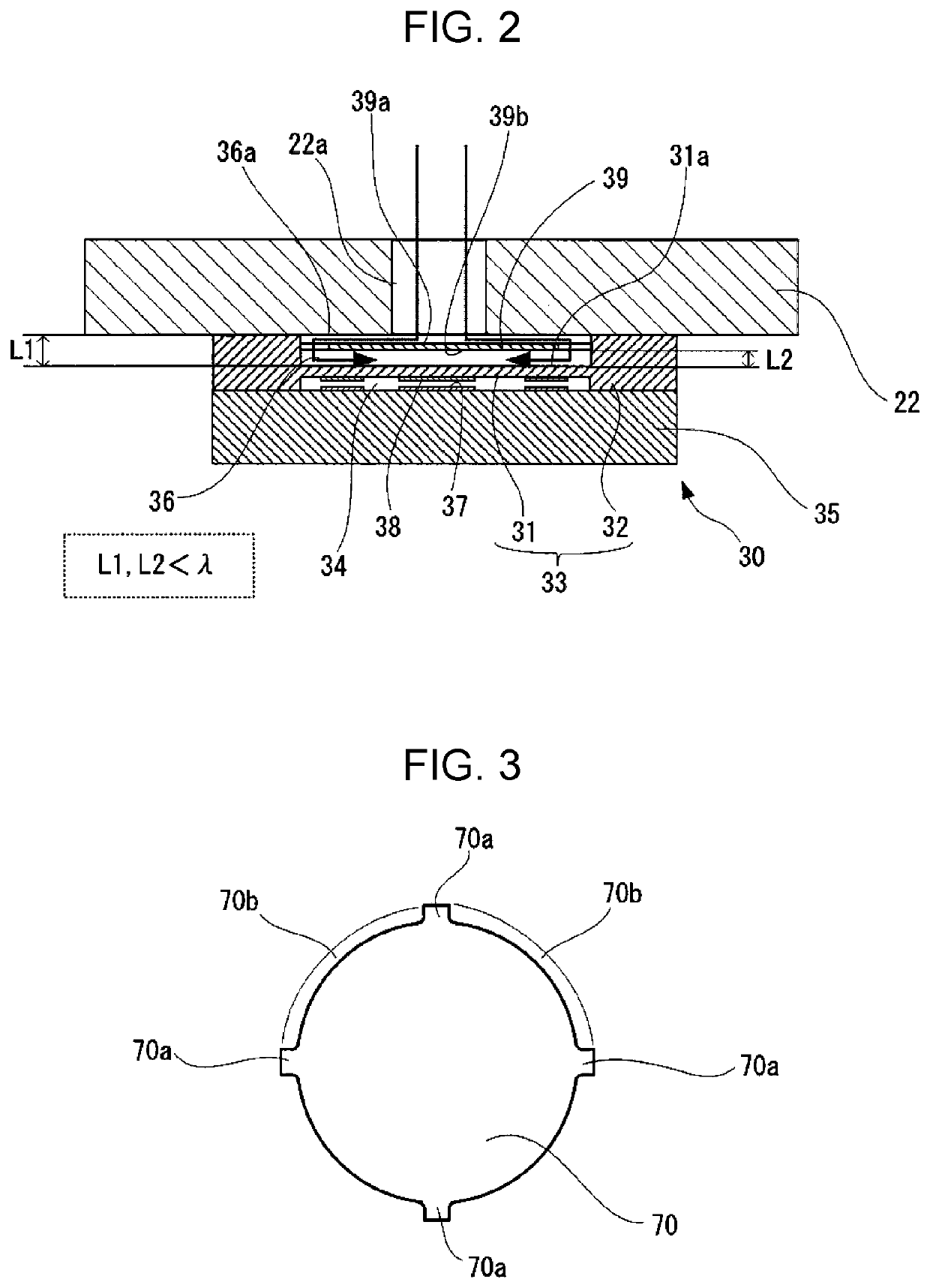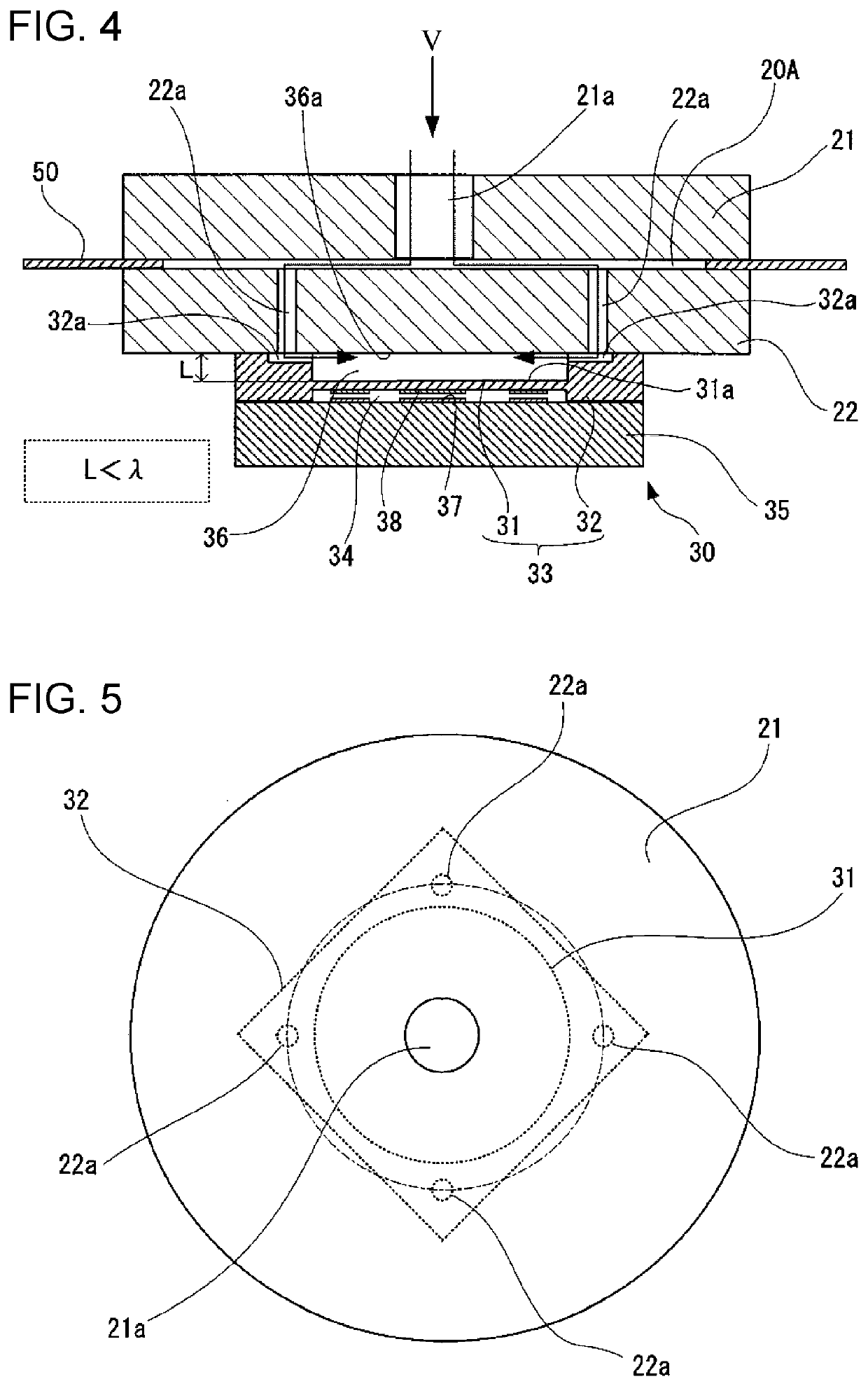Capacitive pressure sensor
a capacitive pressure sensor and sensor technology, applied in the direction of fluid pressure measurement, pressure difference measurement between multiple valves, instruments, etc., can solve the problems of diaphragm gauge malfunction, change of pressure sensitivity, and significant affecting the quality of film deposition or etching
- Summary
- Abstract
- Description
- Claims
- Application Information
AI Technical Summary
Benefits of technology
Problems solved by technology
Method used
Image
Examples
first embodiment
(First Embodiment)
[0046]FIG. 1 is a vertical cross-sectional view of a main part of a diaphragm gauge which is an embodiment of a capacitive pressure sensor according to the present disclosure.
[0047]A diaphragm gauge 1 includes a package 10, a base plate assembly 20 contained in the package 10, a sensor chip 30 also contained in the package 10 and joined to the base plate assembly 20, and electrode lead portions 40 directly attached to the package 10 and configured to electrically connect the interior and exterior of the package 10. The base plate assembly 20 is composed of a first base plate 21 and a second base plate 22, spaced from the package 10, and supported by the package 10 with only a supporting diaphragm 50 therebetween.
[0048]The package 10 includes an upper housing 11, a lower housing 12, and a cover 13. The upper housing 11, the lower housing 12, and the cover 13 are made of metal resistant to corrosion and are joined to one another by welding.
[0049]The upper housing 11 ...
second embodiment
(Second Embodiment)
[0075]Although the pressure introducing chamber 36 is provided with the baffle plate 39 in the first embodiment, the second embodiment does not include the baffle plate 39. FIG. 4 is a vertical cross-sectional view of a main part of the diaphragm gauge 1 corresponding to FIG. 2. Note that the first base plate 21 is additionally shown in FIG. 4.
[0076]In the second embodiment, the second base plate 22 has a plurality of (four, in this example) discharging holes 22a for discharging the measured medium. The discharging holes 22a communicate with the slit-like space (cavity) 20A and the pressure introducing chamber 36 in the sensor chip 30. FIG. 5 illustrates a positional relationship between the introducing hole 21a formed in the first base plate 21 and the discharging holes 22a formed in the second base plate 22. FIG. 5 is a plan view as viewed in the direction of arrow V in FIG. 4.
[0077]As illustrated in FIGS. 4 and 5, the introducing hole 21a in the first base plat...
third embodiment
(Third Embodiment)
[0081]In the second embodiment (i.e., structure illustrated in FIG. 4), there may be cases where, due to constraints in processing the sensor chip 30, the distance L between the pressure receiving surface 31a of the sensor diaphragm 31 and the inner surface 36a of the pressure introducing chamber 36 cannot be made smaller than the mean free path λ of the measured medium.
[0082]In such a case, as illustrated in FIG. 7, the second base plate 22 may be processed in such a manner that substantially the entire surface thereof facing the pressure receiving surface 31a of the sensor diaphragm 31 becomes a raised surface 22b, so that the distance L between the pressure receiving surface 31a of the sensor diaphragm 31 and the raised surface 22b in the pressure introducing chamber 36 is smaller than the mean free path λ of the measured medium.
[0083]In this case, the distance between the inner surface 36a of the pressure introducing chamber 36 outside the raised surface 22b an...
PUM
| Property | Measurement | Unit |
|---|---|---|
| molecular diameter | aaaaa | aaaaa |
| temperatures | aaaaa | aaaaa |
| Pressures | aaaaa | aaaaa |
Abstract
Description
Claims
Application Information
 Login to View More
Login to View More - R&D
- Intellectual Property
- Life Sciences
- Materials
- Tech Scout
- Unparalleled Data Quality
- Higher Quality Content
- 60% Fewer Hallucinations
Browse by: Latest US Patents, China's latest patents, Technical Efficacy Thesaurus, Application Domain, Technology Topic, Popular Technical Reports.
© 2025 PatSnap. All rights reserved.Legal|Privacy policy|Modern Slavery Act Transparency Statement|Sitemap|About US| Contact US: help@patsnap.com



